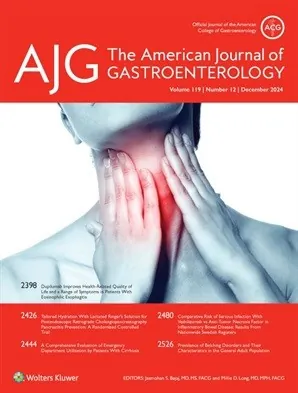
Study Reveals Dark Chocolate’s Sweet Secret to Lowering Type 2 Diabetes Risk!
2024-12-06
Author: Jia
Dark Chocolate and Diabetes Risk
A groundbreaking study has unveiled that consuming at least five servings of dark chocolate each week can significantly cut the risk of developing type 2 diabetes, as opposed to those who indulge rarely. In contrast, the study found a troubling link between milk chocolate consumption and increased weight gain.
The Global Diabetes Crisis
Globally, the alarming rise in type 2 diabetes cases is hard to ignore; with around 463 million individuals diagnosed in 2019, forecasts suggest this figure could skyrocket to 700 million by 2045. This multifaceted disease arises from insulin resistance and impaired insulin secretion, leading to severe health complications like cardiovascular disease, kidney failure, and vision loss.
Dietary Factors in Diabetes Management
As more research emerges linking lifestyle choices to better health outcomes, diet has been identified as a crucial factor in preventing and managing type 2 diabetes. Specifically, dietary flavonoids, prominent in dark chocolate, are known for their potential to diminish diabetes risk.
Research Overview
This recent research, spearheaded by Binkai Liu of the Harvard T.H. Chan School of Public Health, analyzed three extensive U.S. studies involving over 192,000 participants. Every four years, participants filled out food frequency questionnaires that enabled researchers to assess both total chocolate and subtype consumption over an average span of 25 years.
Compelling Findings
Among the participants, 18,862 were diagnosed with type 2 diabetes, and the results were compelling. Those eating five servings of any chocolate weekly experienced a 10% lower diabetes risk than those who seldom consumed it. When it came to dark chocolate specifically, this figure soared to a remarkable 21% reduction in risk.
Impact of Dark and Milk Chocolate
The findings also indicated that for each added serving of dark chocolate consumed weekly, the risk of diabetes decreased by an additional 3%. Conversely, heightened consumption of milk chocolate correlated with long-term weight gain, presenting a concerning health warning for sweet-toothed consumers.
Nutritional Differences
Interestingly, while both dark and milk chocolate share similar calorie and saturated fat content, the high flavanol concentration in dark chocolate may counteract the adverse impacts associated with sugar and fat, offering protective effects against metabolic diseases.
Conclusion
"Increased consumption of dark, but not milk, chocolate was associated with lower risk of type 2 diabetes," the researchers stated, highlighting the essential role that chocolate type plays in heart health and diabetes management.
Implications for Chocolate Lovers
This critical study, which emphasizes the heart-healthy benefits of dark chocolate and warns against the risks of milk chocolate, was recently published in The BMJ, sparking fresh excitement in the nutrition community. What does this mean for chocolate lovers? It’s time to rethink your chocolate choices! Indulging in rich, dark chocolate could be your new favorite way to support your health while satisfying your sweet tooth. Stay tuned for more exciting updates and research findings!



 Brasil (PT)
Brasil (PT)
 Canada (EN)
Canada (EN)
 Chile (ES)
Chile (ES)
 España (ES)
España (ES)
 France (FR)
France (FR)
 Hong Kong (EN)
Hong Kong (EN)
 Italia (IT)
Italia (IT)
 日本 (JA)
日本 (JA)
 Magyarország (HU)
Magyarország (HU)
 Norge (NO)
Norge (NO)
 Polska (PL)
Polska (PL)
 Schweiz (DE)
Schweiz (DE)
 Singapore (EN)
Singapore (EN)
 Sverige (SV)
Sverige (SV)
 Suomi (FI)
Suomi (FI)
 Türkiye (TR)
Türkiye (TR)